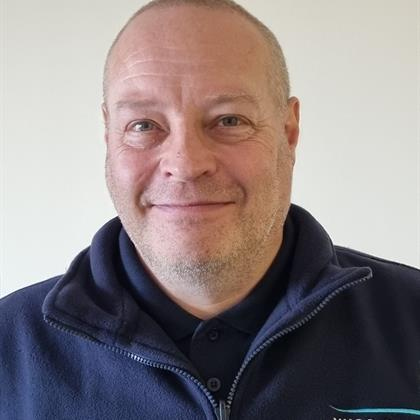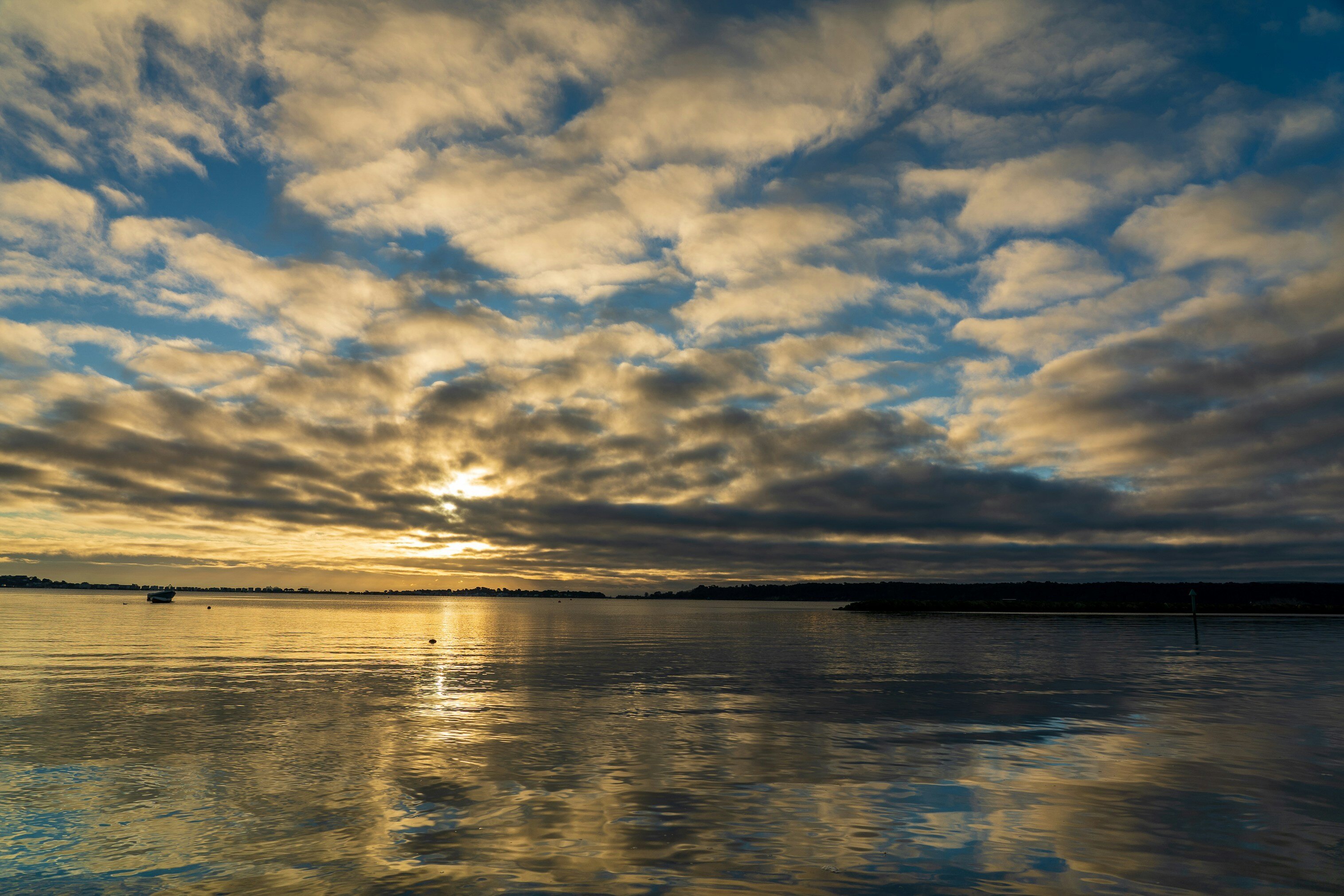How to specify a Sewage Treatment Plant for campsites and caravan parks
Designing and implementing an effective sewage treatment plant for campsites and caravan parks presents unique challenges. These facilities must not only cope with highly variable loadings and seasonal flows but also meet stringent environmental regulations, all while ensuring minimal impact on the holiday experience. In this blog, we'll explore the crucial factors to consider when specifying a sewage treatment plant in these settings.
Staycation trend fuels surge in UK camping and glamping options
The UK camping scene is seeing a surge in popularity as the staycation trend brings more landowners into the sector with ever more novel and immersive camping experiences. Existing camping destinations are also experiencing an uptick in interest with new glamping options bringing in more guests and extending their holiday season:
“Glamping has moved beyond its canvas origins towards high-end spaces of quality design and more year-round appeal, with cabins and treehouses beginning to take an overwhelming share of revenue and achieve impressive occupancy rates.”
Source: Canopy & Stars
But where does all the waste go?
But as more people are brought to beauty spots to stay and enjoy the countryside, more human waste is inevitably produced.
And as rural holiday parks, caravan, and campsites do not have access to mains sewers, they need to rely on existing private wastewater treatment systems to handle new volumes of effluent.
For many sites, coping with renewed interest in their services and pressure on their facilities can entail completely overhauling their waste-handling capabilities.
Six key considerations for specifying your holiday park sewage treatment plant
1. Coping with Seasonal Flows and Loads
Campsites and caravan parks experience significant fluctuations in occupancy, particularly during the summer months. The sewage treatment plant must be capable of handling peak demand during busy periods without compromising performance. Choosing a system based on the population size and the number of facilities is essential, ensuring it can adapt to both high and low usage periods. This adaptability is key to maintaining consistent treatment quality. You should be able to avoid system overload and protect its functioning during winter frosts and long periods of inactivity.
2. Capacity Planning for Future Growth
As the popularity of a campsite or caravan park grows, so does the strain on its sewage treatment facilities. When specifying a system, it's crucial to consider current needs and potential future growth. This foresight ensures the system won't become obsolete as visitor numbers increase, safeguarding your investment and ensuring continuous compliance with effluent standards.
British Water’s Best Practice Guide to Flows and Loads provides a table of loadings, which allows the total daily sewage load from different kinds of camp and caravan sites to be calculated. It is recommended that all designers use this table when sizing and designing a non-mains sewage treatment system.
3. Meeting High Effluent Standards in Rural Locations
Many campsites and caravan parks are in rural areas, often near Sites of Special Scientific Interest (SSIs) or protected watercourses. High effluent standards are non-negotiable in such sensitive environments, and the risk of fines and reputational damage from polluting activity is high. You need to be aware of discharge requirements. These may include gaining permissions to discharge treated effluent from the EA and meeting the general binding rules for small sewage discharges (SSDs) that took effect on 2 October 2023.
4. Minimising Visibility, Noise, and Odour
A sewage treatment plant's aesthetic and sensory impact is critical in a holiday setting. Systems should be designed to be as unobtrusive as possible, with minimal noise and odour emissions. This consideration ensures that the sewage treatment plant doesn't detract from the natural beauty and tranquillity that holidaymakers seek in a campsite or caravan park.
5. Low Maintenance and Operator Requirements
Given the often-remote locations of campsites and the limited technical expertise on-site, it's vital to choose a sewage treatment plant that requires minimal maintenance and operator intervention. Systems that are easy to manage and maintain ensure continuous, hassle-free operation, which is crucial for businesses where a breakdown could significantly impact both operations and guest experience. Unusual locations can also represent significant installation challenges, as bulky equipment has to be fitted in hard-to-reach spaces with restricted vehicle access.
6. Understanding the Process Guarantee and Whole Life Costs
Finally, it's important to consider the whole life costs of the sewage treatment system, including installation, operation, maintenance, and potential upgrades. A system that may seem cost-effective initially but requires frequent and expensive maintenance can become a financial burden. The scalability of the solution should also be considered. How easily can it be extended as your operations grow, and at what cost? A robust process guarantee will offer peace of mind, ensuring the system will perform as expected over its lifespan.
Do you need a septic tank or sewage treatment plant?
So, what are your options for effective effluent disposal?
Should you choose a Septic Tank?
Septic tanks are underground tanks where solids settle and decompose through anaerobic processes. The remaining liquid effluent flows out of the tank into a drainage field.
If your facility has been around for a long time, you may have an existing septic tank that needs replacing.
But what are the potential challenges of choosing a septic tank system for a new site or simply replacing an existing tank with a larger version?
Regulatory Restrictions
In many parts of the UK and Ireland, the use of septic tanks is heavily regulated or even prohibited, especially in areas sensitive to pollution or where the soil is not suitable for a drainage field. The new general binding rules may prevent you from installing a septic tank altogether.
Limited Suitability
They are generally only suitable for small, low-occupancy sites and where ground conditions are favourable.
Environmental Concerns
The quality of treatment can be much lower than with packaged treatment plants, posing a higher risk of pollution.
Why choose a packaged sewage treatment plant?
These are compact, self-contained units that treat sewage and wastewater on-site. They use a combination of mechanical and biological processes to break down and purify the sewage. This typically involves stages like primary settlement, biological treatment (using bacteria), and final settlement or clarification.
Advantages
Quality of Effluent: The treated water is of a high quality and can be more safely discharged into watercourses or drainage fields, subject to local regulations and consents.
Space-Efficient
They are relatively compact, making them suitable for areas where space is at a premium.
Low Environmental Impact
Biological treatment reduces environmental impact, making them a good choice for locations sensitive to pollution.
Versatility
They can be easily scaled to suit the size of the caravan park or camping site, accommodating varying levels of sewage and wastewater.
How should you care for your packaged sewage treatment plant?
With a constant turnover of guests, all with different waste disposal needs, campsites and caravan parks face particular challenges in educating their users and protecting their systems from damage.
Many campers will have chemical toilets, the contents of which they will need to dispose of quickly and efficiently.
You should ensure you make separate provision for the disposal of chemical waste so it doesn’t end up in your sewage treatment plant. Signage should make it clear to a constantly changing population what the correct procedures are at your site.
Follow these clear rules to ensure the biological balance of your STP is not disrupted by discharge from chemical toilets, cleaning regimes, swimming pools or spas. Likewise, ensure you take steps to prevent fats and greases clogging up your system.
Dos and Don’ts for care of your packaged sewage treatment plant
Do:
- Ensure a suitable Chemical Disposal Point (CDP) is accessible and maintained regularly for safe disposal of chemicals
- Install and maintain an appropriately sized grease trap
- Provide training to kitchen staff to avoid disposing of excess waste into the sewer
- Effectively manage and regulate the use of strong cleaning chemicals
- Operate the plant in accordance with the manufacturer’s guidelines
- Where possible use environmentally friendly cleaning and laundry products
Don’t:
- Dispose of fat, grease, or cooking oil down sinks or drains
- Discharge swimming pool or spa back wash waters into a treatment plant
- Turn off the treatment plant
- Use salt based water softeners
- Tip bottles of medicine or mouth wash etc. down the sink, toilet or drains
- Pour any garden chemicals, paint or car engine oil down the sink or drains
Case study: a custom packaged treatment plant brings new processing power
Home Park Farm is a family-run caravan park situated in an area of outstanding natural beauty in Somerset. Their existing septic tank system, installed in the 1950s, was outdated and proving inadequate for an increased number of holidaymakers.
The choice of HiPAF tanks was carefully calculated to deal with the fluctuations of seasonal demand while meeting the most stringent environmental regulations for safe effluent treatment and disposal.
The full case study (which you can read here) illustrates the importance of finding a solution for the unique challenges of effluent disposal in off-grid and protected countryside.
Conclusion
Selecting the right sewage treatment plant for a campsite or caravan park is a complex but crucial task. It requires a careful balance of technical, environmental, and operational thinking.
If you need to balance the challenges of disposing commercial effluent properly with the practicalities of installation, you can’t rely on ‘one size fits all’ approach. Ensure you find a partner with the right experience and a commitment to service who can help you build and maintain a scalable solution over time.
Topics: Wastewater Treatment

Written by Steve Holt
Steve is the Engineering Technical Manager at WCS Environmental Engineering, specialising in off-mains sewage solutions. With extensive experience ranging from domestic to large-scale commercial applications, Steve works on custom designed sewage treatment systems tailored to site-specific needs. He collaborates closely with architects and engineering firms, leveraging his strong mechanical and electrical engineering background and experience with multinational companies to deliver cost efficient treatment.





